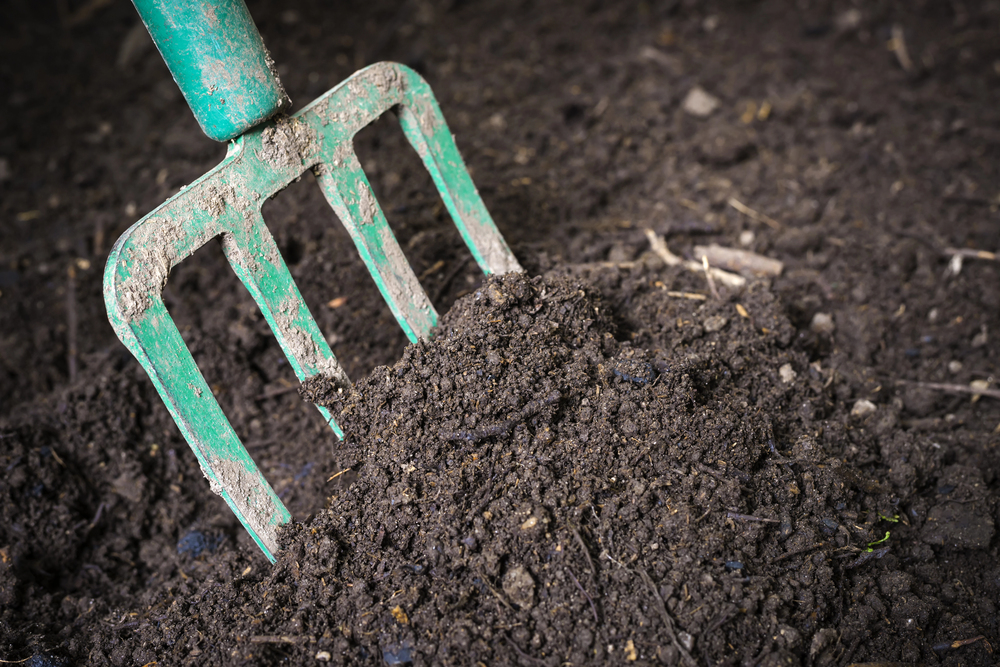Why do we choose harmful chemicals for our lawns when we can use safer options? Organic lawn care creates a healthy area. This means your yard can grow well without using synthetic items. Without chemical herbicides, fertilizers, and pesticides, your lawn, plants, and family stay healthy. And, it’s good for the environment too.
Picture a yard that’s bright green and protects the environment. The trick is to start from the ground up, literally. This means strong grass roots, choosing the best grass, using water wisely, and keeping the soil healthy. You can have a beautiful yard that’s also good for the planet.
Key Takeaways
- Organic lawn care promotes a chemical-free yard, benefiting the environment and your family’s health.
- Traditional lawn care products can harm the ecosystem.
- Strengthening grass roots naturally results in a strong lawn.
- Picking the right grass type makes your yard more sustainable and easier to keep up.
- Using water wisely is key for eco-friendly landscaping.
- Keeping the soil healthy with organic methods helps grass grow well for a long time.
Understanding the Basics of Organic Lawn Care
Organic lawn care aims to create a natural and healthy environment in your yard. It uses materials like manure, compost, and leaf mulch. These materials boost the soil’s health, leading to strong and self-sustaining lawns.
What is Organic Lawn Care?
Organic lawn care is all about using natural materials from plant or animal sources. It avoids synthetic chemicals. This approach helps the soil by supporting helpful microorganisms.
It makes your lawn strong and able to resist issues. Choosing environmentally friendly landscaping also helps your local surroundings. It benefits the environment around your home.
Dangers of Chemical Lawn Care
The dangers of using chemical products on lawns are big. They can hurt not only unwanted pests but also good insects like bees. Kids and pets are also at risk if they play on chemically treated grass.
This can lead to problems like water pollution. The chemicals can wash off into streams and lakes, harming the environment more widely.
Testing and Improving Soil Health
If you’re into organic lawn care, start by checking your soil’s health and makeup. Use a soil test to check the pH and look for nutrient shortages. Testing the soil helps ensure you improve it the right way and creates a good place for your grass to grow.
Conducting a Soil Test
You can test your soil with a DIY kit or by sending a sample to a lab. The pH level of your soil decides if it’s best for different types of grass. When you know the pH and nutrient levels, you can choose the best organic amendments wisely.
- Collect soil samples from various spots in your lawn to ensure accuracy.
- Mix the samples together in a clean container.
- Follow the instructions provided with your soil testing kit or lab submission.
Amending Your Soil Organically
Use the soil test results to plan how to adjust your soil’s pH and nutrients. For example, add wood ash if it’s too acidic, or use sphagnum peat if it’s too alkaline. Adding compost and mulch helps a lot too. It enriches the soil and helps good bugs that keep the soil healthy and disease-free.
- Wood Ash: Makes soil less acidic by raising pH.
- Sphagnum Peat: Adds acidity to the soil, lowering its pH.
- Compost: Gives the soil nutrients and helps good microorganisms.
These natural amendments help your lawn grow well without harmful chemicals. By working on soil quality, you can get a beautiful lawn that’s good for the environment.
Choosing the Right Grass Varieties for Your Organic Lawn
Picking the correct grass types is key for an organic lawn. Base your choice on the weather and your yard’s features. This way, you’ll reduce the work needed and make your lawn strong.
Climate-Specific Grass Types
It’s crucial to choose grass types that fit your area’s climate. Buffalo grass and bermudagrass do well in warm regions, while Kentucky bluegrass and bentgrass are great for cooler spots. This makes your lawn healthy all year without chemicals.
Grass Varieties for Sun and Shade
The amount of sunlight your lawn gets affects which grass is best. Zoysia and fescue love the sun, St. Augustine and fine fescue prefer shade. Using local seeds and sustainable turfgrass helps your lawn grow strong without the bad stuff.
By picking the right organic grass, you help the environment and your lawn’s health. The right choices limit chemical use and boost the soil and biodiversity. This lays the groundwork for a lush, natural lawn.
The Role of Natural Fertilizers and Compost
Natural fertilizers and compost help keep your lawn lively and healthy. They are packed with nutrients that the soil needs. This helps plants grow well and makes the grass strong.
Benefits of Organic Fertilizers
Organic fertilizers, like bone meal and seaweed, are great for your lawn. They give plants nutrients slowly. This means plants grow steadily and healthily. These methods are also better for the soil over time and protect the environment.
How to Use Compost Effectively
Using compost on your lawn is smart. It makes the soil better for plants. Compost helps the soil hold more water and supports helpful bacteria. Put a little compost on your lawn. Let it break down naturally and help your soil. Using grass clippings as mulch also adds important nutrients. This way, you can have a strong, green lawn without using too many chemicals.
Watering Techniques for an Organic Lawn
Proper watering is key to a healthy organic lawn. It’s best to water smartly to keep the lawn in good shape. Too much water can harm the grass roots and lead to weeds and disease. So, it’s important to water just enough.
It’s better to water deeply but less often. This helps the grass roots grow stronger. Also, water in the early morning or late evening to avoid water loss from evaporation. These tips are good for both the lawn and the environment.
Smart sprinkler systems are great for an organic lawn. They can water your lawn at the perfect times. Also, using rain barrels to collect water can cut down on your water use and save money. This makes your lawn care better for the planet and your wallet.
Organic Weed Control Alternatives
Maintaining your lawn without chemicals is possible and better. It keeps your yard safe and healthy. There are ways to deal with weeds that are eco-friendly.
Homemade Natural Weed Killers
Making natural herbicides at home is easy and effective. Mixtures with vinegar, soap, and salt work well to stop weed growth. Essential oils like clove and orange can also fight tough weeds.
These homemade solutions are good for your lawn. Plus, they don’t bring harmful chemicals into your yard.
Hand Weeding and Prevention
Pulling weeds by hand might be hard but it’s worth it. It’s a key step in stopping weeds without damage. Taller grass from proper mowing can also help keep weeds away.
A healthy root system in your grass stops weeds too. This all supports a healthy lawn without chemicals.
Eco-Friendly Pest Management Strategies
You can turn your lawn into a pest-free zone without harsh chemicals. Use natural methods and befriend helpful garden bugs. This will help your yard become a healthy space.
Natural Predators and Beneficial Insects
Ladybugs, spiders, and birds can eat many harmful pests. They keep the check on bugs like aphids and mites. Adding flowers, such as marigolds, daisies, and sunflowers, will attract these helpers to your garden.
DIY Organic Pest Solutions
Make your own organic sprays to keep bugs away. Mix things like tobacco, mint, dish soap, and vinegar. For aphids, try a simple soap and water mix. A vinegar spray keeps ants at bay. Planting strong-smelling herbs like mint and lemongrass can also protect your garden.
Mowing Practices to Support Organic Lawn Care
How you mow your lawn greatly matters for its health. It’s crucial to learn the right way to mow. We’ll look at methods helping your grass stay green and strong.
Optimal Grass Height for Different Varieties
It’s key to know the best height to mow your lawn, depending on the grass type. For cool-season grasses like bluegrass, keeping them 3 to 4 inches tall is perfect. Warm-season grasses, however, can be cut a bit shorter.
Mowing at the right height reduces stress on the grass. It also keeps more moisture in, helping your lawn fight off diseases.
Importance of Sharp Mower Blades
The state of your mower blades is critical for your grass’ health. Sharp blades give clean cuts, not rough tears. This protects your grass from pests and diseases.
Regular blade sharpening keeps your lawn neat and strong. Remembering to leave grass clippings behind recycles nutrients and keeps your lawn lush.
Maintaining Soil Moisture and Reducing Runoff
To keep an organic lawn healthy, focus is important. We need to look at moisture in the soil and stopping runoff. These things make sure the lawn looks good and stays healthy all year. They also use less water and protect the environment.
Smart Watering Practices
Watering the right way helps keep the soil moist. Give your lawn the water it needs without wasting by timing it right. Use a rain gauge to watch and change your watering times. Try to water when it’s cooler to stop the water from disappearing too fast.
Benefits of Mulching
Mulch is great for keeping the soil wet and stopping runoff. It keeps the soil’s moisture steady and slows down water loss. Plus, as the mulch breaks down, it gives nutrients to the soil. This is like natural food for your lawn.
These steps do more than just keep your lawn in shape. They help use water wisely and protect local water sources. By watering smart and using mulch, you’re making your yard greener and safer from chemicals.
Conclusion
Choosing to care for your lawn organically is a beneficial path. It keeps dangerous pesticides away from your loved ones. This choice also helps the earth. Organic lawn care methods make the soil healthier. This supports a strong ecosystem, helping your lawn stay beautiful and green.
Organic lawn care offers many more pluses than just looking good. It keeps your land chemical-free, showcasing your care for nature. These methods improve the soil and encourage more plant and animal life. Your yard will soon become a lively, green area you can be proud of.
Going organic in your gardening is a complete journey. It may take some work but the outcomes are worth it. Your soil will be healthier and your lawn will need fewer chemicals. This choice beautifies your space while showing your dedication to sustainable living.





